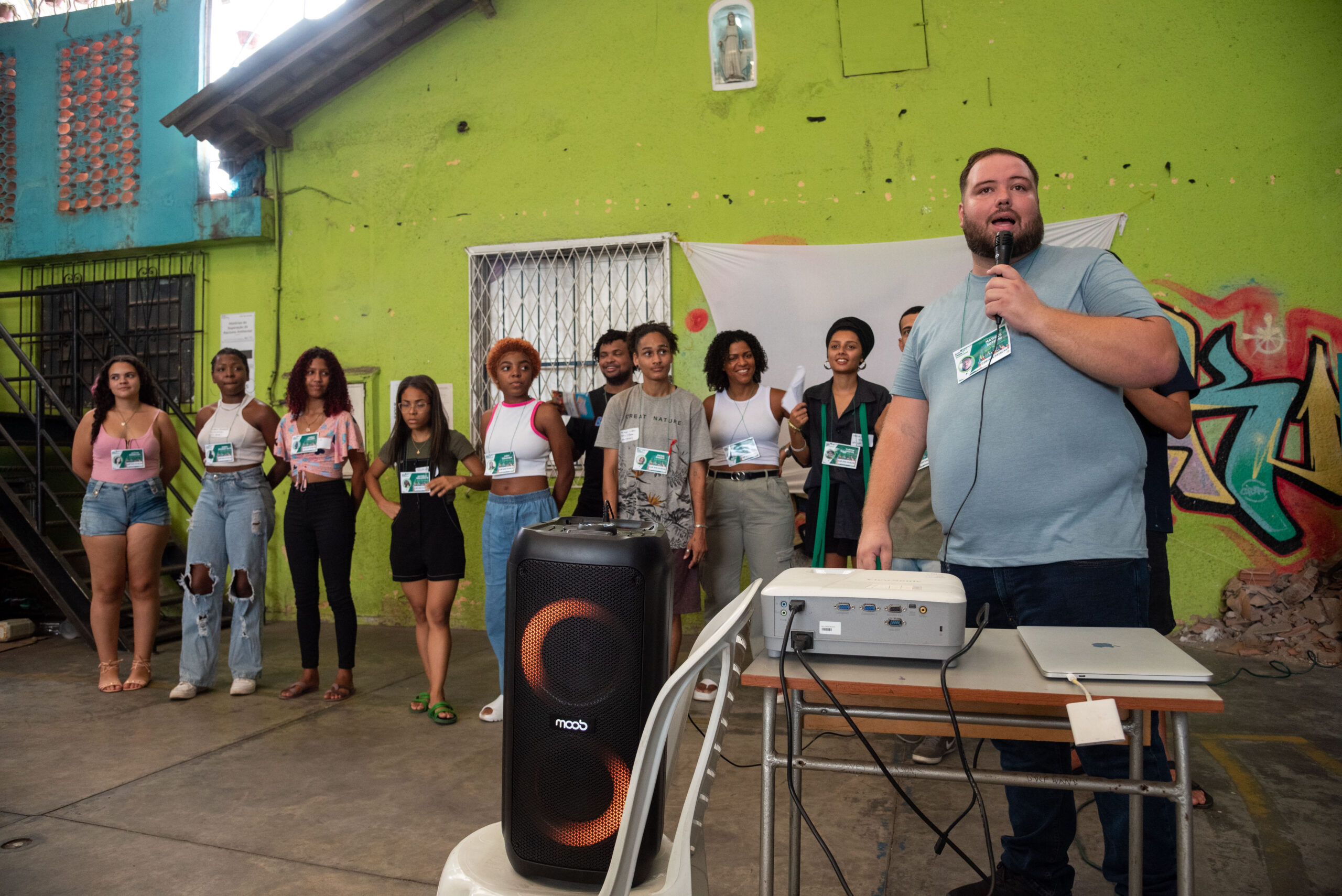
Clique aqui para Português
Youth from favelas across Greater Rio de Janeiro held the “Favelas’ COP” on December 2, during the UN Climate Conference (COP 28) as part of the 6th Annual Sustainable Favela Network (SFN)* Meet-up at the Irmãos Kennedy Community Center (CCIK) in Vila Kennedy, West Zone. The activity fostered discussions among youth, community organizers, and residents, considering four issues identified as particularly significant by the youth organizers as they reflected on COP: solid waste; injustices stemming from, and stories about overcoming environmental racism; and the protagonism and role of peripheral youth in fighting climate change.
COP 28 Vs. Favelas’ COP: Drawing Parallels Starting With Those Most Affected
Organized by the UN, each annual Conference of the Parties (COP) plays a crucial role in the global response to environmental threats. Representatives from signatory countries attend to evaluate these threats and propose strategies for addressing and mitigating climate change. In 2023, COP 28 was held in Dubai, United Arab Emirates, from November 30 to December 12.
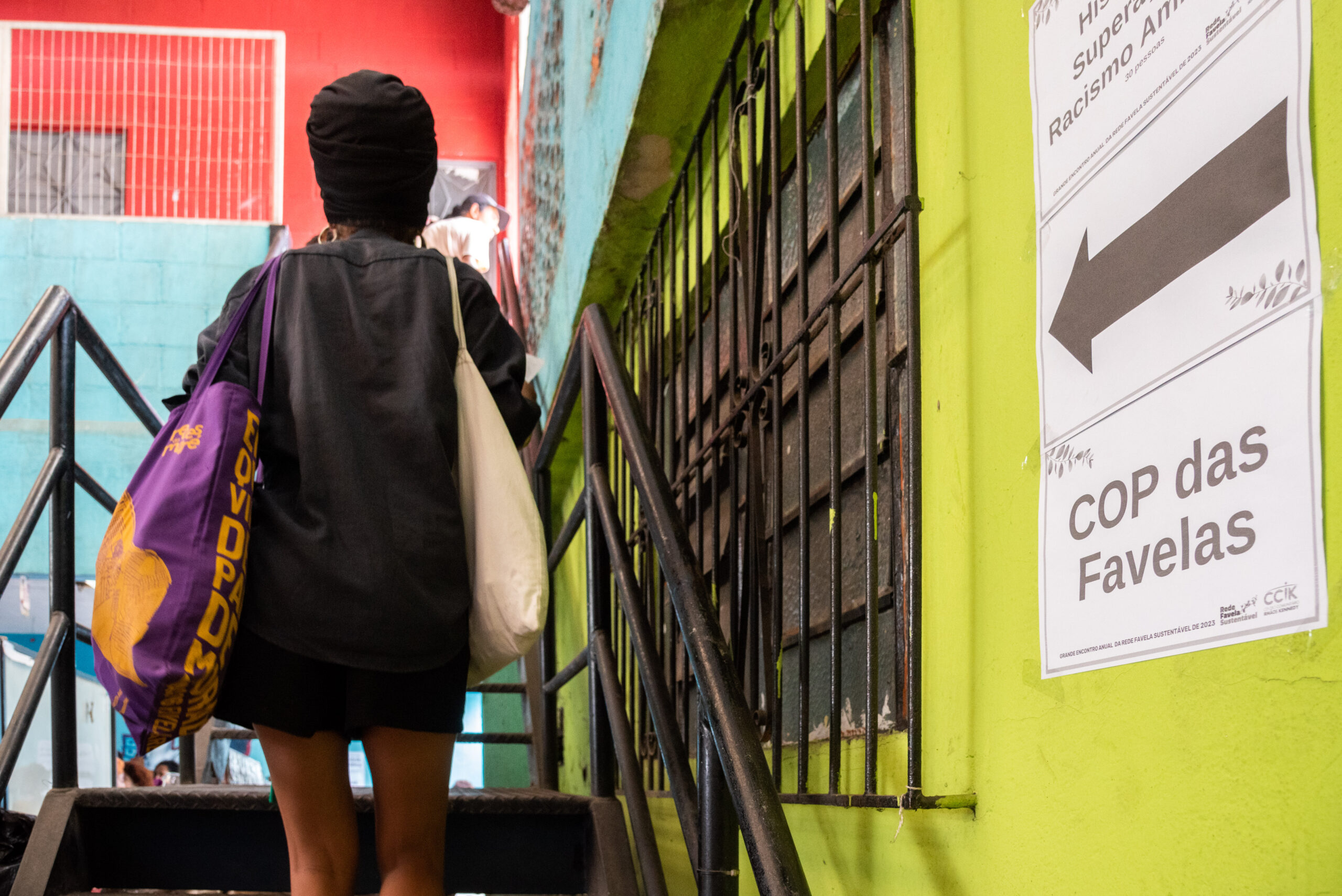
Matheus Botelho, resident of Coréia in Mesquita in Greater Rio’s Baixada Fluminense region, explains how the idea of creating a space for discussion among youth from the favelas came about.
“COP… is an event without the participation of those who truly suffer [the effects of] climate change. That’s why we had the idea of doing the Favelas’ COP, [because favelas] are the places that suffer most with environmental racism [in Brazil].” — Matheus Botelho
The proposal for the Favelas’ COP took shape in the form of two series of discussion circles, facilitated by youth. Youth protagonism marked the event. The goal was to foster intergenerational discussions between young and veteran organizers of the SFN.
Learning Circles at the Favelas’ COP
In each circle, some chose to share strategies for overcoming government neglect that have been successfully implemented in their territories.
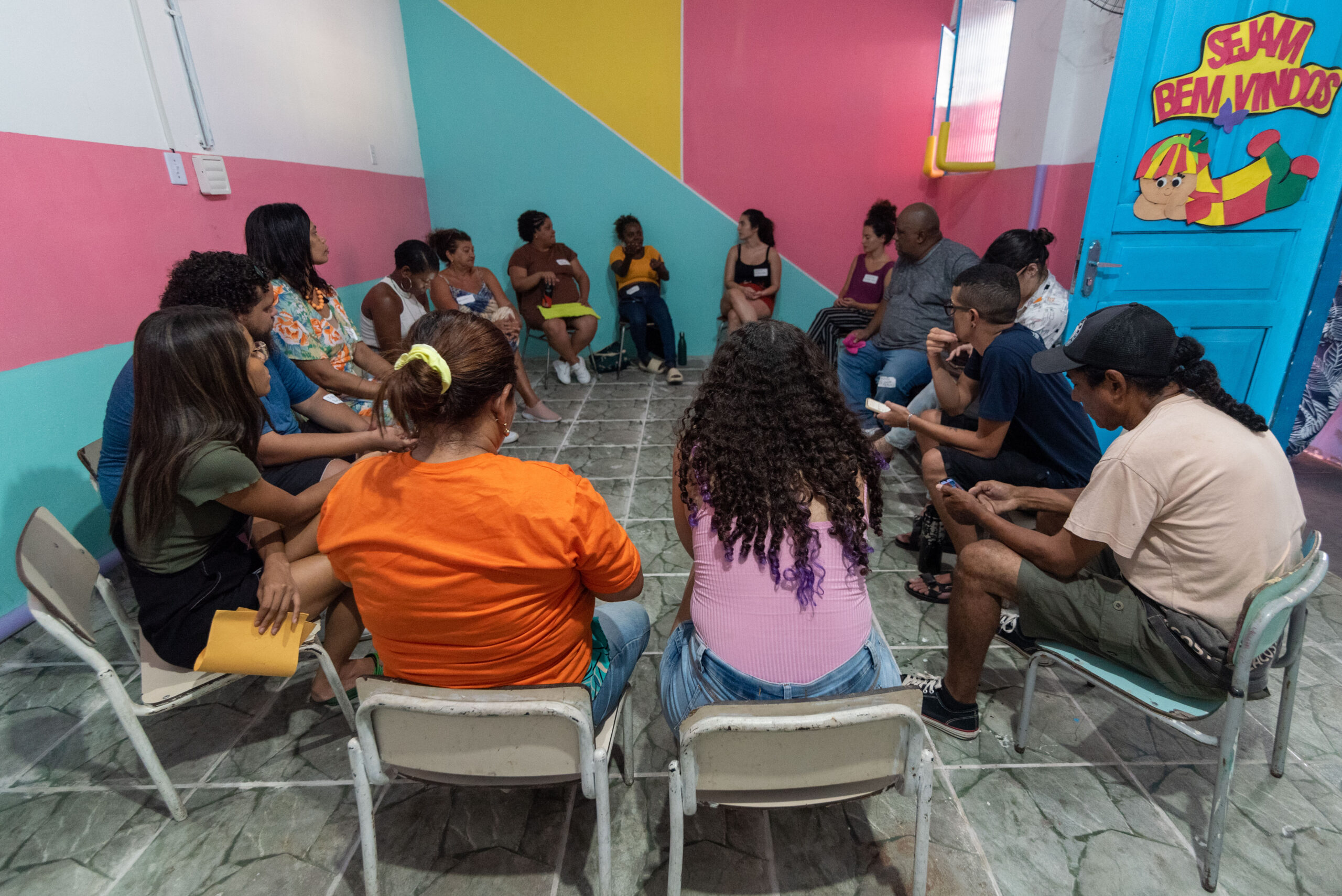
Proposals emerged for training in environmental education in order to work with solid waste and generate income, and for the legalization of cooperatives. Ilaci Luiz de Oliveira, from the Transvida Cooperative, commented on the bureaucracy and expense of creating and maintaining legalized recycling cooperatives.
“I have no way of paying an accountant… Because solid waste is very inexpensive [our work is extremely devalued], but the bureaucracy isn’t. The federal government wants to encourage regularization [of recycling cooperatives], but I, in the field, don’t have the resources to do this… because you need certificates, documents… In order to have an active cooperative, for instance, I need to have an active payroll… that’s not the reality of most workers.” — Ilaci Luiz de Oliveira
On the other hand, Tiago de Lima, the young mediator for the Solid Waste in Favelas discussion circle, a resident of the Tijuquinha community in Rio’s West Zone and a Geography and Environment student at Rio’s Pontifical Catholic University (PUC-Rio), shared his experience studying and witnessing climate injustice.
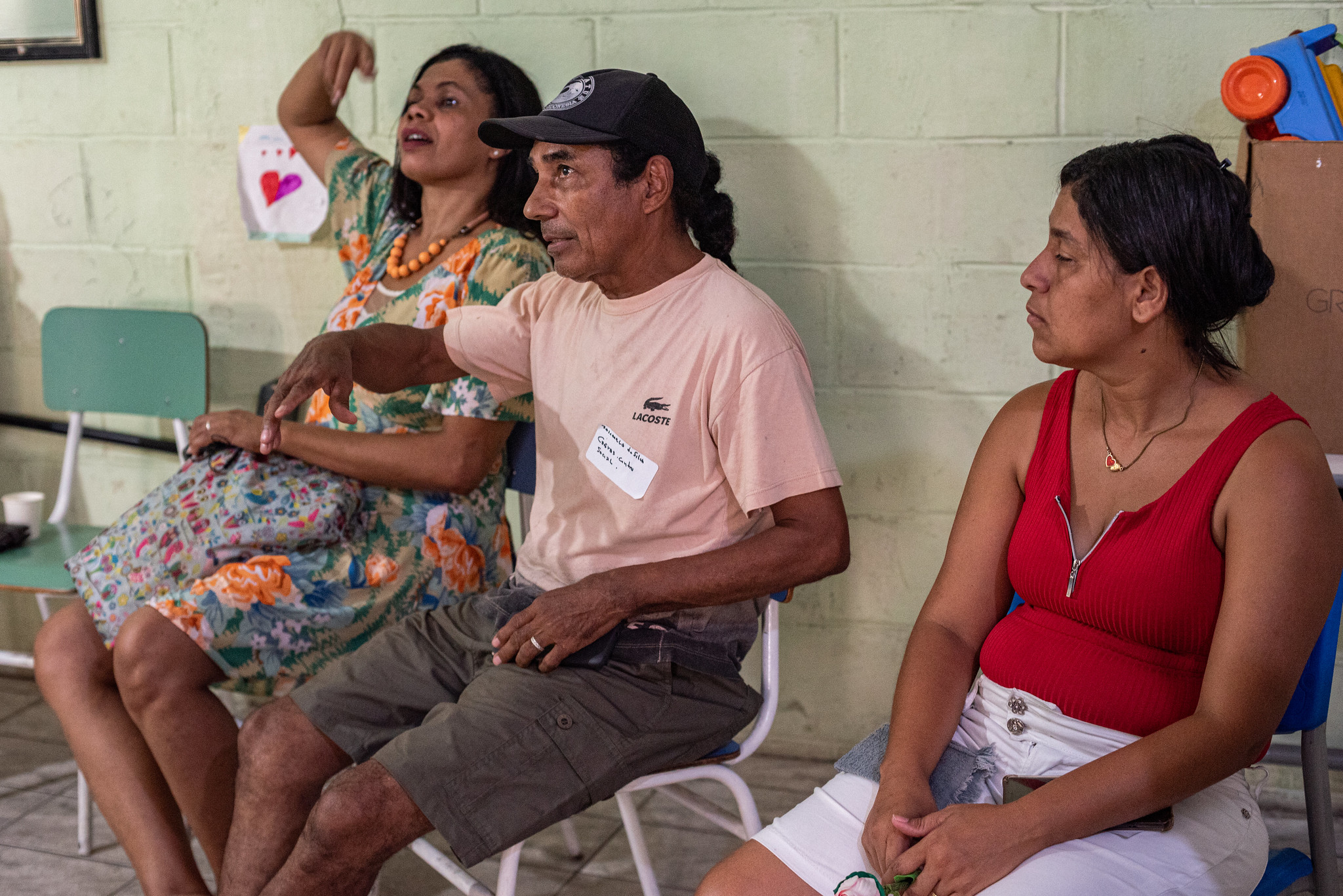
The importance of environmental education was highlighted as a pathway to addressing the socio-environmental issues in favelas and other communities historically subjected to environmental racism.
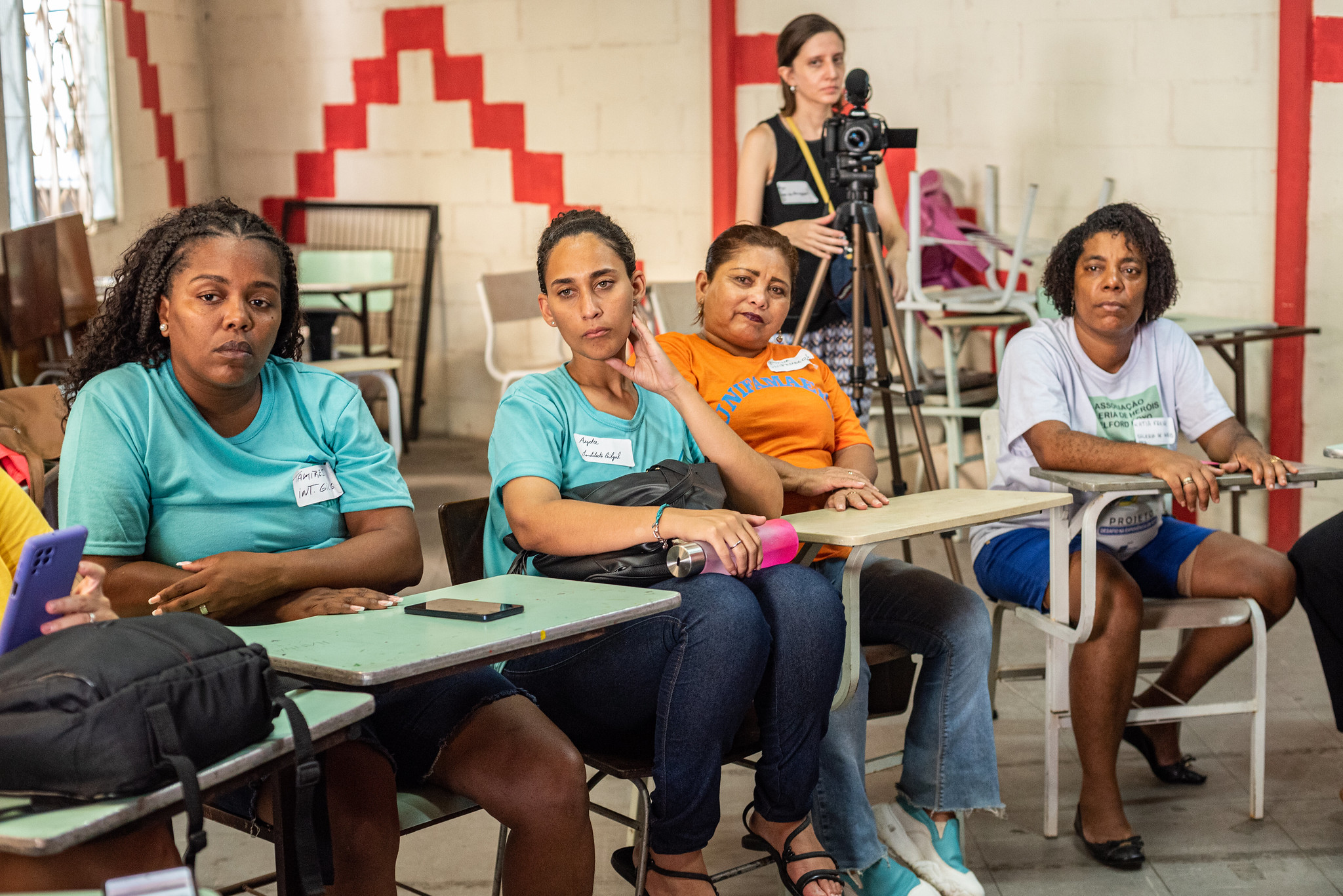
Mauro Pereira, co-founder of Defenders of the Planet, an organization that has been addressing socio-environmental issues in the Serra do Mendanha mountains and communities of Rio’s West Zone since 1999 delivered a powerful talk during the discussion “Stories about overcoming environmental racism”. For the biologist and activist, the West Zone is the region most affected by environmental racism. Some attendees referred to it as a sacrificial zone.
“[We have] the largest portion of Atlantic Forest in the city [within] our region, the greatest number of rivers… The highest biological diversity [is found] in the Serra do Mendanha, which is in my territory… However, we also have enormous environmental liabilities… When they chose the area to place a large landfill… the Gericinó landfill, which closed down, but if you go there, you’ll see people on top of the trash, gas escaping, methane, and leachate contaminating the soil… When they placed two steel mills here in our area… it’s our climate crisis… They don’t want us to know, but 70% of [Rio’s] greenhouse gas emissions are here in my area… thanks to companies like the Atlantic Steel Company (TKCSA).” — Mauro Pereira
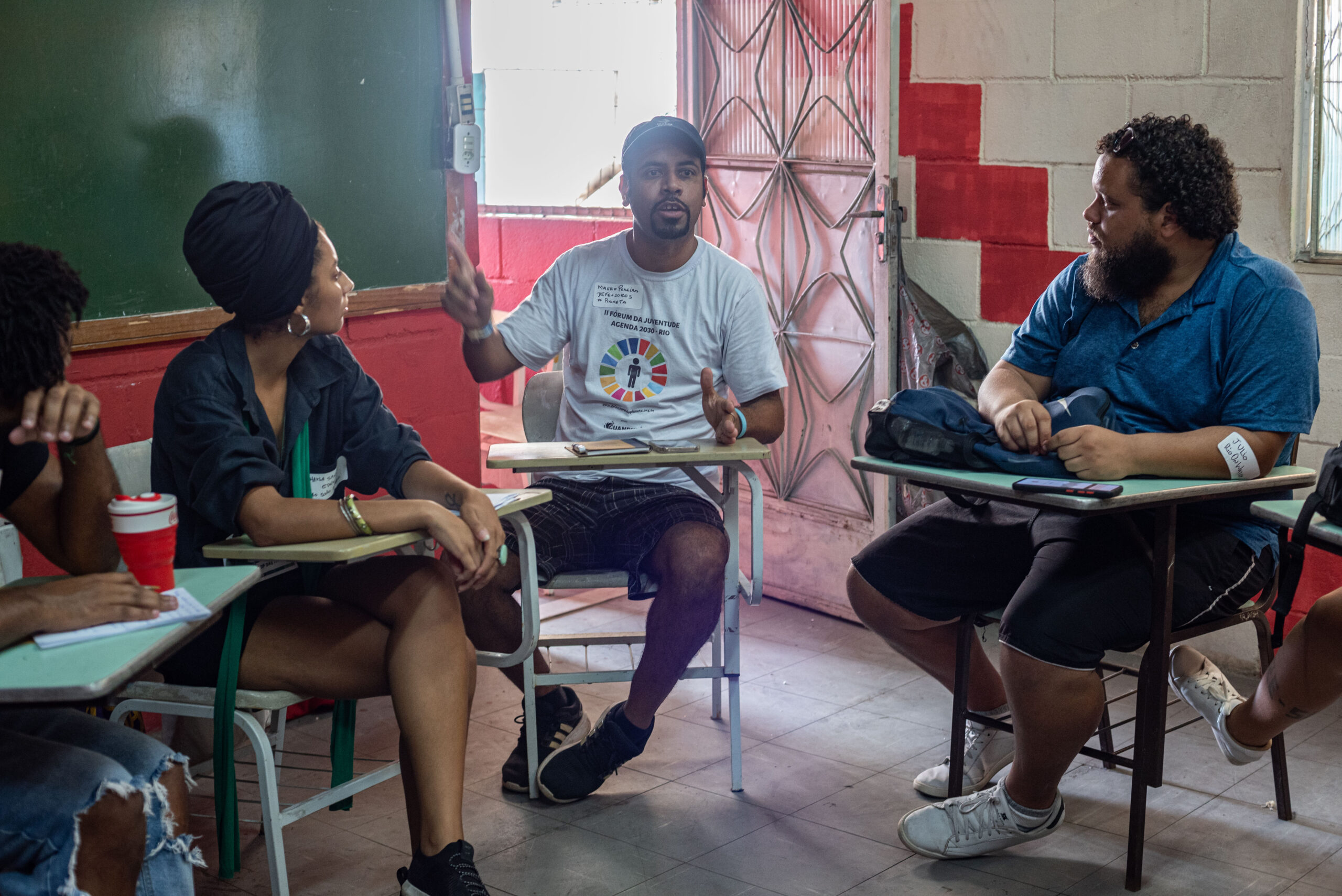
As discussions neared their end, this space of youth protagonism for climate was deemed crucial by those present. Leading the moderation of the circle “Protagonism and the role of peripheral youth in fighting climate change,” Sara Hins, a member of the Favela Museum (MUF) in favelas Pavão-Pavãozinho and Cantagalo (PPG), in Rio’s South Zone, spoke about the significance of the Favelas’ COP to her.
“I found the process very interesting, being with other youth from different areas, each with its own specificity, discussing topics like environmental racism and climate justice. The importance of the Favelas’ COP is to discuss these themes from the perspective of our territories, where we, Black and peripheral bodies, are the most affected by climate change… the Favelas’ COP engages with the official COP in that it creates a space that we, peripheral civil society, wouldn’t have access to otherwise… formed by people who truly and personally experience the impacts of climate change, day to day.” — Sara Hins
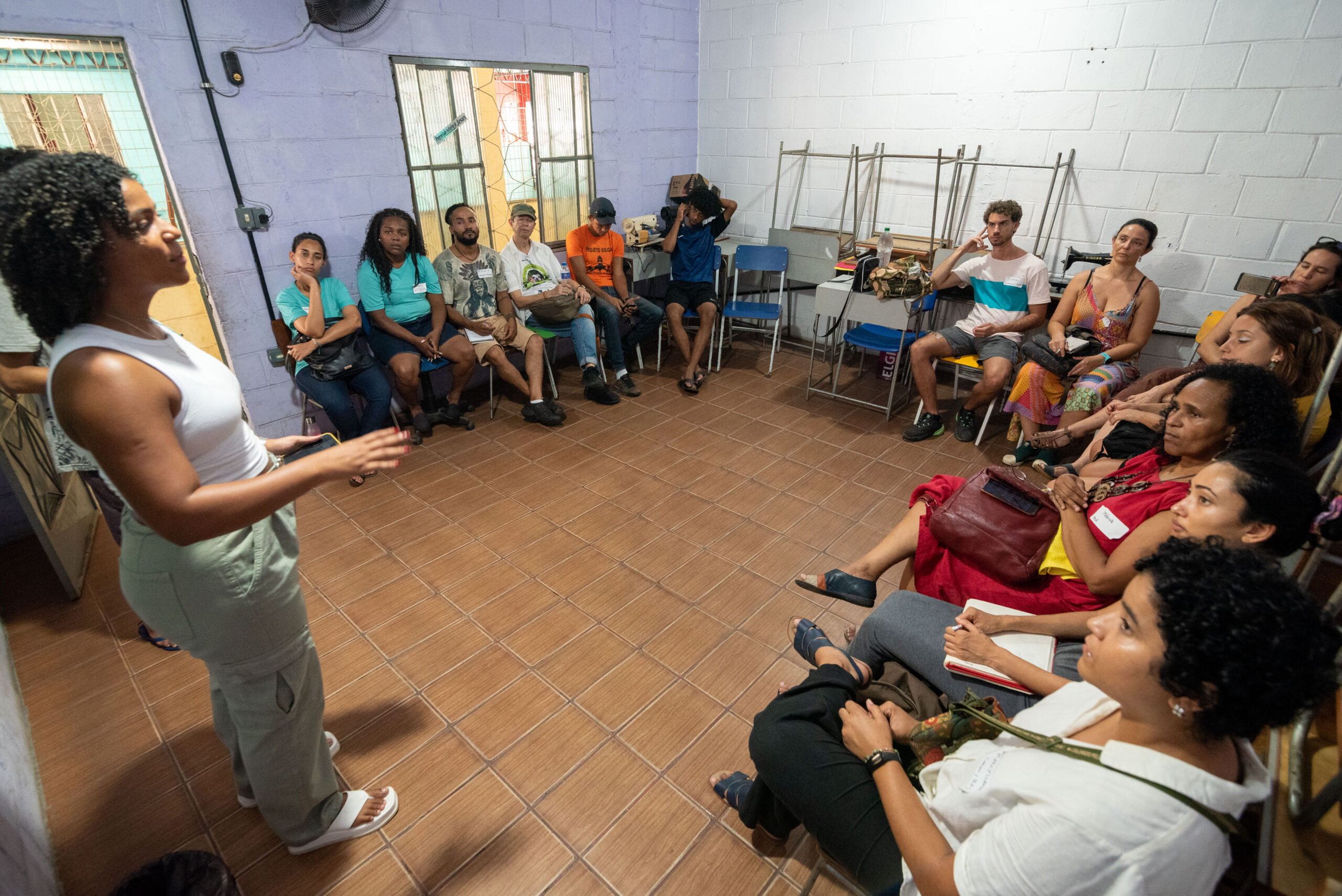
Young Tiago from Tijuquinha also reflected on the importance of the activity for his development.
“I think the Favelas’ COP has been essential for my growth, both academically and socially… The discussions we had here were incredible… the room we were in focused on solid waste, so we heard many stories from waste pickers… I believe the Favelas’ COP is very similar to the UN COP because we’re discussing problems that happen in our favelas and seeking solutions to what’s going on… I never imagined participating in this COP… everything I learned here today, I want to take back to my favela.” — Tiago de Lima
About the author: Bárbara Dias was born and raised in Bangu, in Rio’s West Zone. She has a degree in Biological Sciences, a master’s in Environmental Education, and has been a public school teacher since 2006. She is a photojournalist and also works with documentary photography. She is a popular communicator for Núcleo Piratininga de Comunicação (NPC) and co-founder of Coletivo Fotoguerrilha.
*The Sustainable Favela Network (SFN) and RioOnWatch are projects of Catalytic Communities (CatComm).
